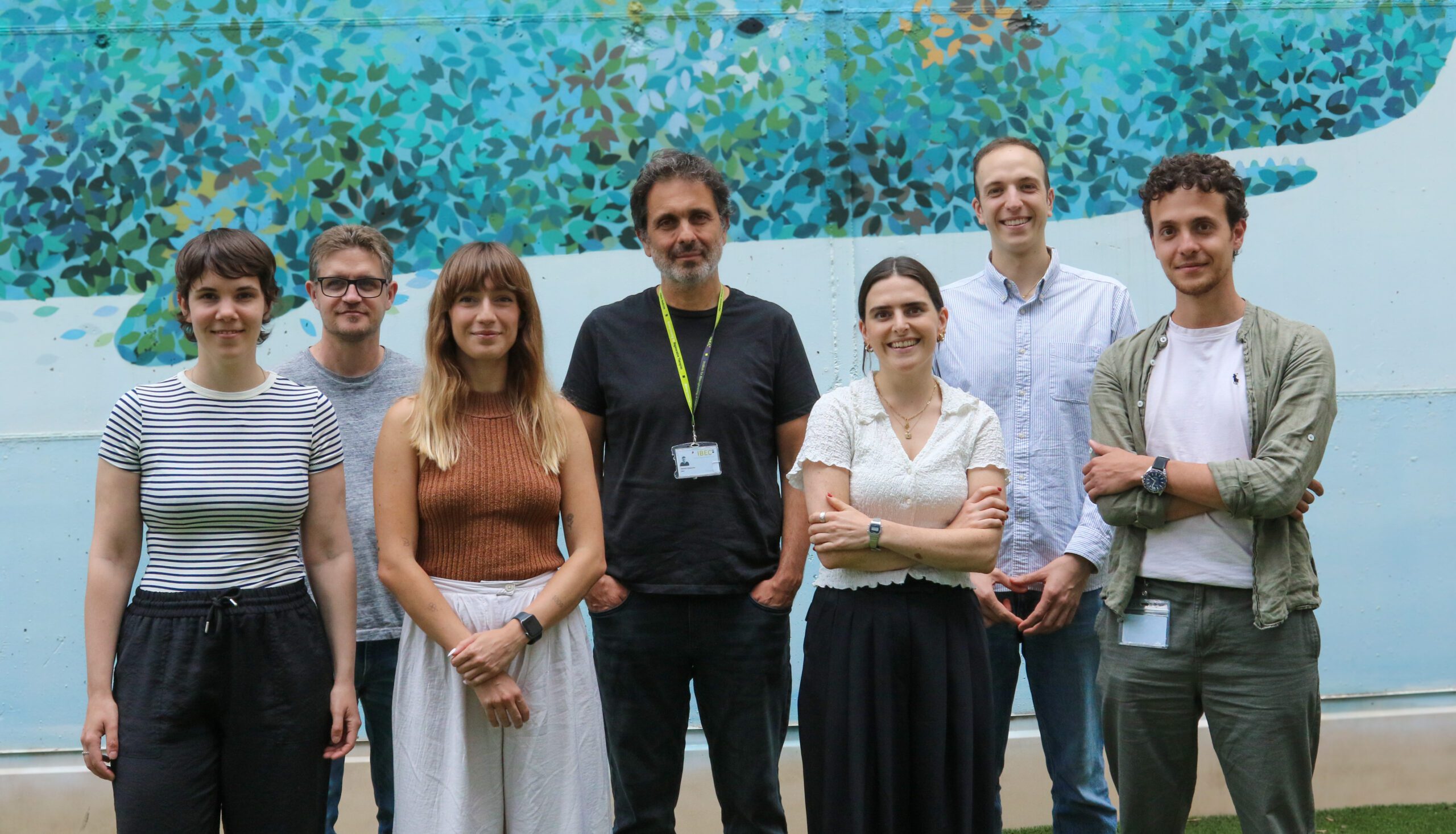ABOUT
We engineer biomaterials with controlled properties for applications in cell engineering, to support in vitro models and as tools for mechanobiology.
Our research focuses on the design of advanced biomaterials to engineer the cellular microenvironment, and has the potential to impact health by translating fundamental research into innovative therapies.
We have pioneered the design of materials that trigger the organisation of extracellular matrix proteins in a physiological way, a phenomenon that named material-driven protein fibrillogenesis (Science Advances 2016). We have also introduced new concepts in the field, such as the use viscosity to control cell behaviour (PNAS 2018); living biomaterials (bacteria-based materials) for stem cell engineering (Advanced Materials 2018); the low dose use of BMP-2 for bone regeneration (Advanced Science 2019), the relationship between matrix rigidity and metabolism (Nature Metabolism 2020) and interfaces that trigger the mechanical activation of growth factors (Advanced Materials 2024).
Our group develops radical new concepts that are pushed all the way through the translational ladder to tackle unmet clinical problems related to the health of people.
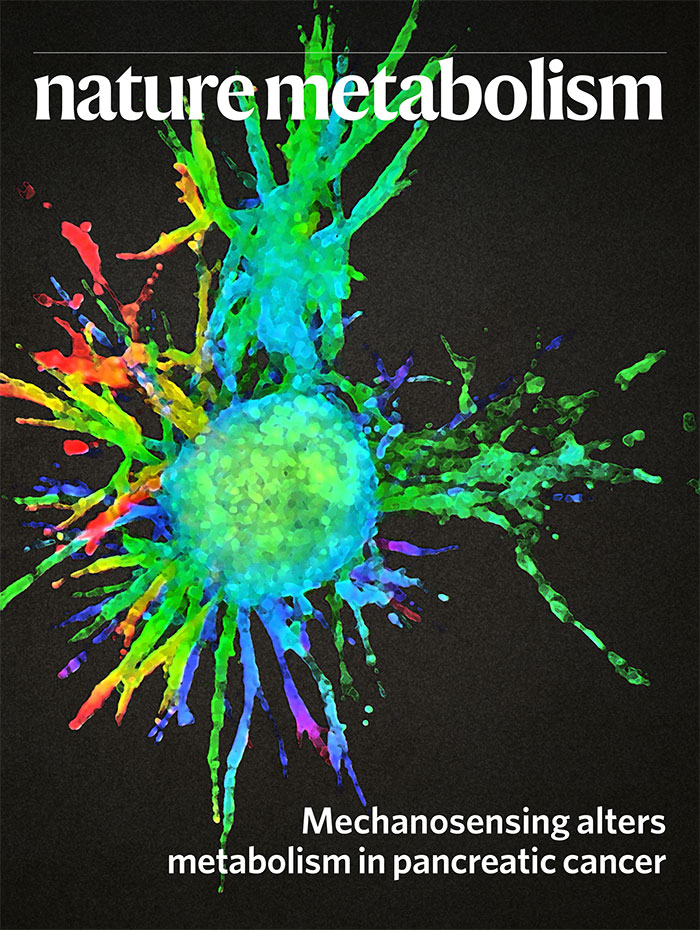
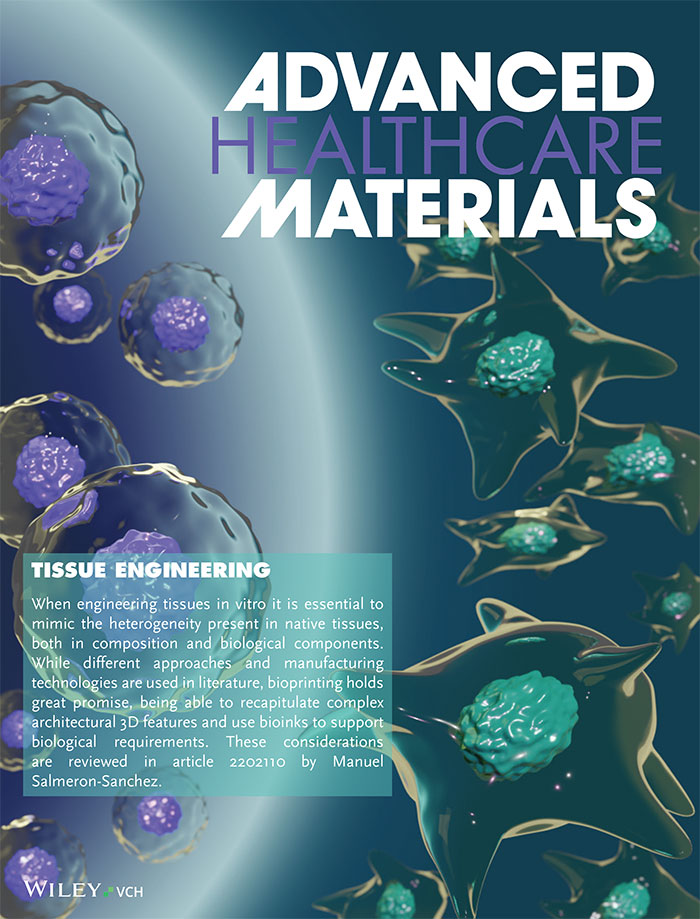
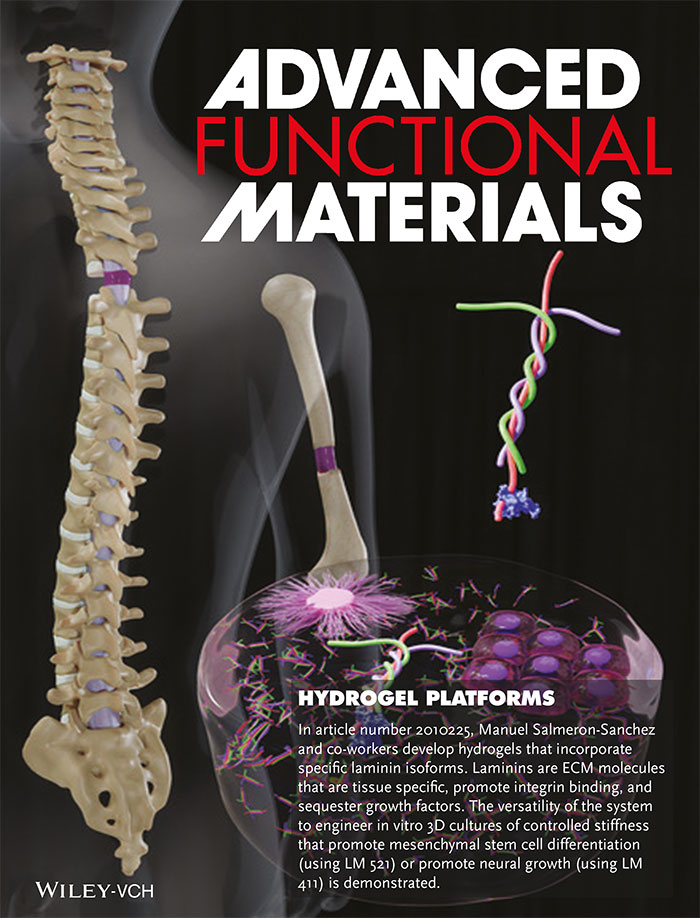
1. Engineered viscoelasticity in regenerative medicine and mechanobiology
We know that the extracellular matrix is viscoelastic yet most biomaterials that support tissue engineering and regenerative medicine approaches only consider the elasticity of biomaterials. We strive at design of materials where elasticity and viscosity can be tuned independently to provide 2D and 3D hydrogels that support dynamic cellular process and their physical remodelling.
2. in vitro models in health and disease
Improved in vitro models enable the study of human tissues in health and disease (e.g. cancer, degenerative diseases, inflammatory diseases), the assessment of new drug delivery tools (e.g. functional biomaterials, encapsulation delivery technologies, new microfluidic devices, etc.), and the cheaper and safer toxicity screening of new drug candidates. We develop robust extracellular matrix mimics, that provide the essential characteristics of a natural ECM in its ability to direct and control cell behaviour, yet with minimal complexity.
3. Engineered living biomaterials to control stem cell fate
Materials-based approaches to direct stem cell fate have resulted in major findings in relation to surface chemistry, stiffness and nanotopography. However, these models are a poor representation of in vivo behaviours, where cells interact with the extracellular matrix through a highly dynamic process. We have pioneered genetically engineered non-pathogenic bacteria that underpin living biomaterials that support stem cells. Living biomaterials that are responsive to small molecules and controlled by light will be new tools in the field.
STAFF
Manuel Salmeron Sanchez
 ibecbarcelona.eu
ibecbarcelona.euPROJECTS
| INTERNATIONAL GRANTS | FINANCER | PI |
|---|---|---|
| Devise · Engineered viscoelasticity in regenerative microenvironments (2023-2028) | European Commission / ERC AdG | Manuel Salmeron |
| NATIONAL PROJECTS | FINANCER | PI |
|---|---|---|
| Viscoliver · Hidrogeles viscoelásticos como plataformas de cultivo 3D de células hepáticas para el modelado de la enfermedad del hígado graso no alcohólico | Agencia Estatal de Investigación / Proyectos de Generación de conocimiento 2022 | Gloria Gallego & Manuel Salmeron |
PUBLICATIONS
EQUIPMENT
COLLABORATIONS
- Matt Dalby
University of Glasgow - Massimo Vassalli
University of Glasgow - Molly Stevens
University of Oxford - Pere Roca-Cusachs
Institute for Bioengineering of Catalonia - Sylvain Gabrielle
University of Mons - Amaia Cipitria
Biogipuzkoa Health Research Institute - Andrés Garcia
Georgia Institute of Technology - Gloria Gallego
Universitat Politècnica de València
NEWS/JOBS
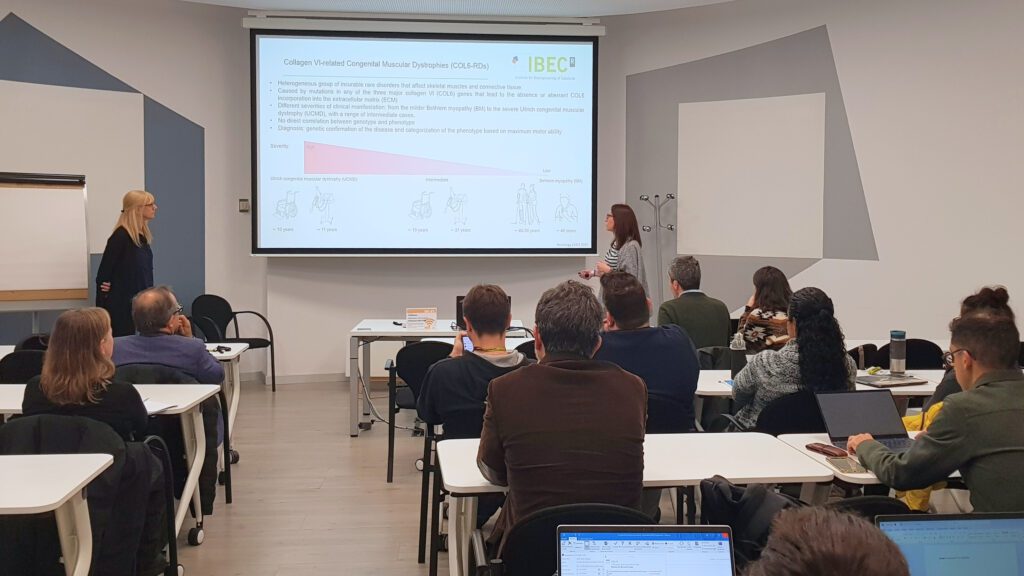
L’IBEC i l’Hospital Sant Joan de Déu reforcen la seva col·laboració amb una jornada d’innovació translacional
L’Institut de Bioenginyeria de Catalunya i l’Hospital Sant Joan de Déu han celebrat una jornada conjunta per impulsar col·laboracions en bioenginyeria i medicina translacional. L’esdeveniment, realitzat aquest matí a l’IBEC, va posar en relleu projectes innovadors, va presentar un programa de doctorat conjunt i va fomentar l’intercanvi d’idees entre investigadors d’ambdues institucions.
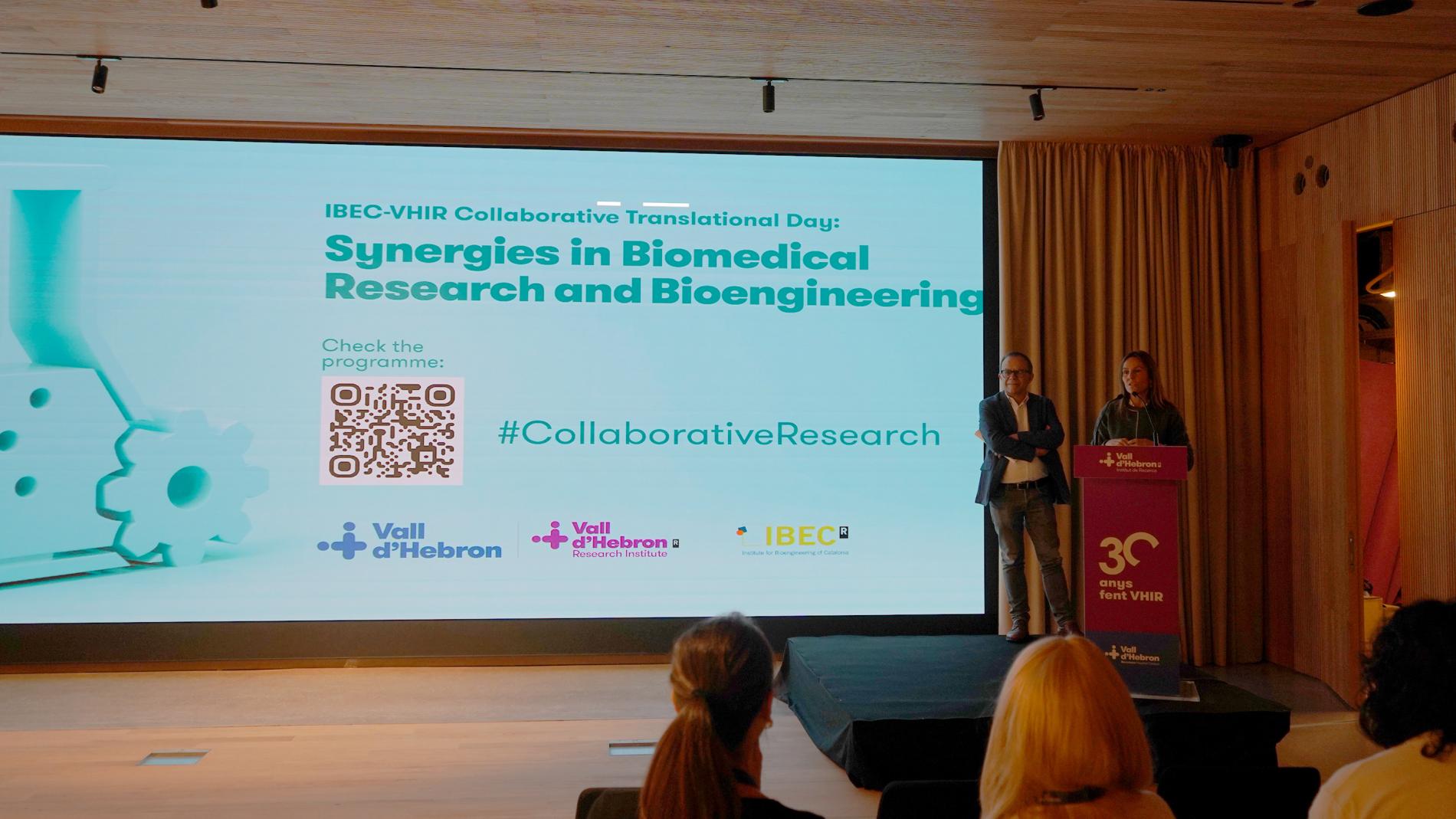
L’IBEC i el VHIR celebren una jornada de col·laboració per fomentar les sinergies
La 1a Jornada Col·laborativa Translacional entre el Vall d’Hebron Institut de Recerca (VHIR) i l’Institut de Bioenginyeria de Catalunya (IBEC), celebrada el 21 de novembre, ha estat una oportunitat per conèixer els projectes i les línies de recerca d’ambdues institucions i promoure la interacció entre els professionals.
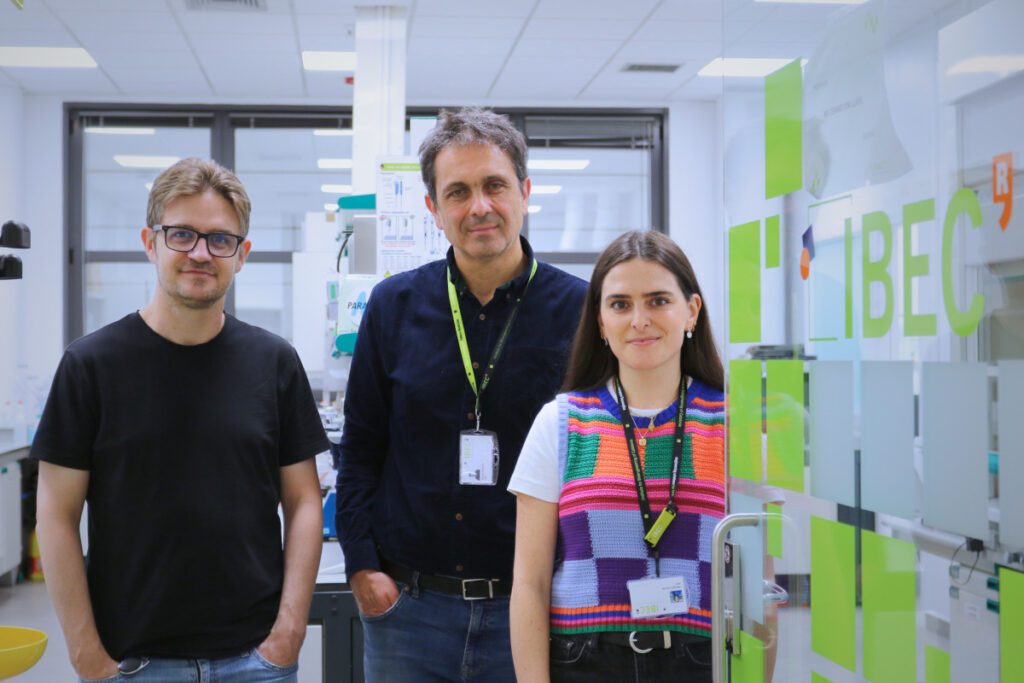
La viscositat dels materials, clau en la diferenciació cel·lular
Un estudi liderat per l’IBEC ha desvetllat com les cèl·lules mare mesenquimàtiques responen a la viscositat del seu entorn, un aspecte fonamental en el seu procés de diferenciació. Publicada a Nature Communications, aquesta recerca aporta nous coneixements que podrien revolucionar el disseny de biomaterials per a aplicacions en medicina regenerativa.
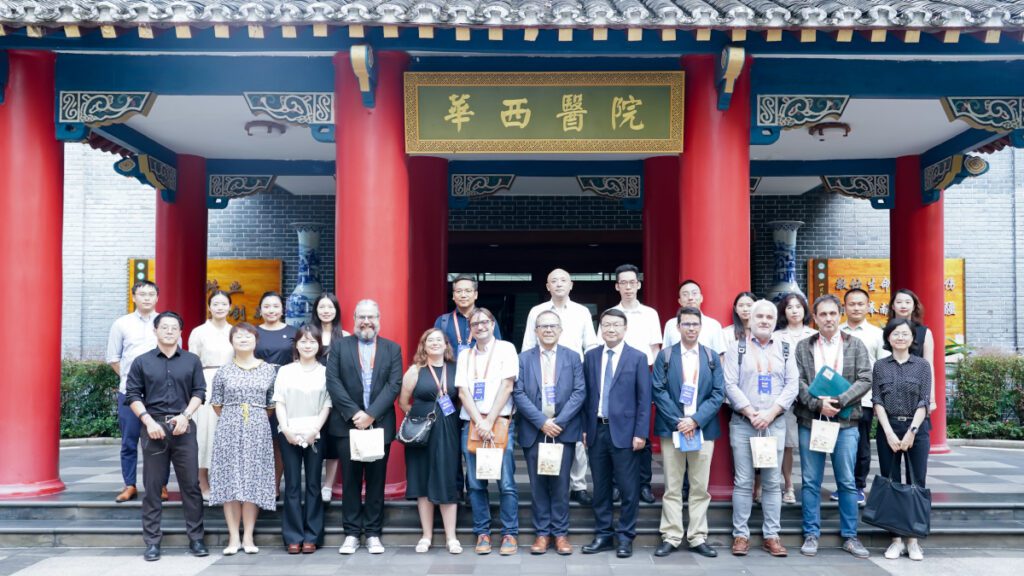
L’IBEC i l’Hospital West China reforcen la seva col·laboració en medicina de precisió
La setmana passada es va celebrar a Chengdu, Xina, la segona Conferència de Medicina de Precisió IBEC-WCH. Es tracta d’una aliança entre l’Institut de Bioenginyeria de Catalunya (IBEC) i l’Hospital West China (WCH) de la Universitat de Sichuan, que busca impulsar la col·laboració científica entre tots dos països.
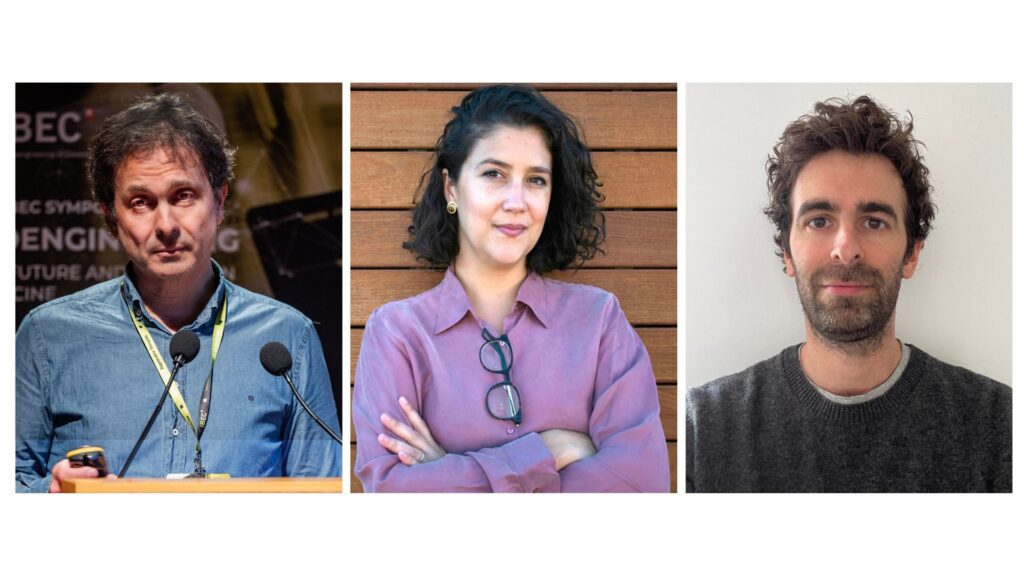
L’IBEC es reforça amb tres nous grups de recerca en teràpies avançades i emergents
L’IBEC estrena el 2024 amb la incorporació de tres nous grups de recerca que seran liderats per Manuel Salmerón Sánchez, Zaida Álvarez Pinto i Xavier Rovira Clavé. Amb aquestes incorporacions, l’IBEC enforteix el seu posicionament en el camp de les teràpies avançades i emergents.
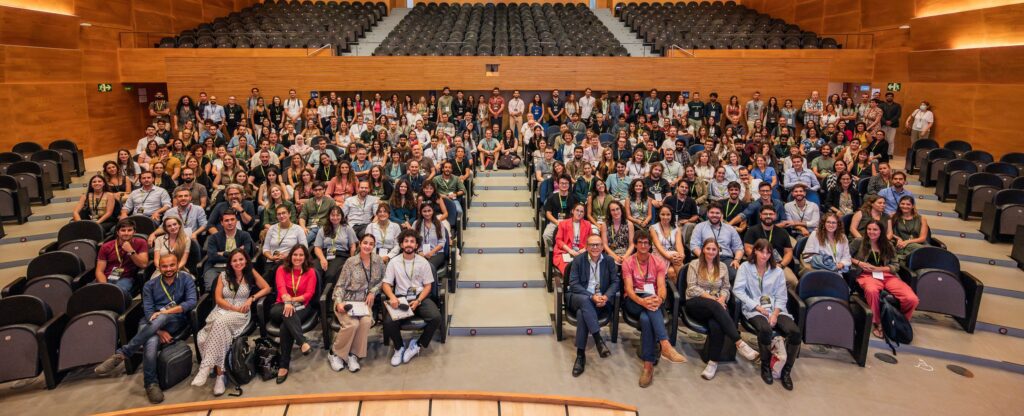
Bioenginyeria per a la medicina del futur en el 16è Simposi de l’IBEC
El 16è Simposi anual de l’IBEC es va centrar en ‘Bioenginyeria per a la Medicina del Futur i de Precisió’, una de les tres àrees clau d’aplicació de l’IBEC. Van ser prop de 300 les persones assistents a l’esdeveniment, entre les quals es trobaven investigadors locals i internacionals. Un ambient multidisciplinari en el qual experts d’altres centres i la pròpia comunitat de l’IBEC van tenir l’oportunitat de presentar els seus projectes i intercanviar coneixement.

